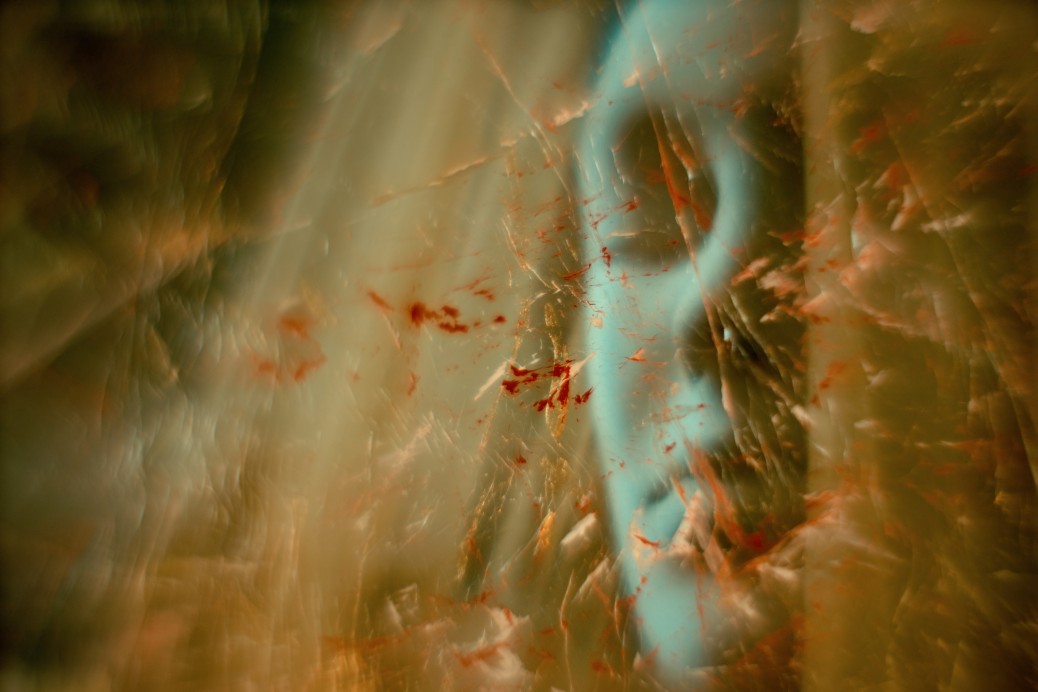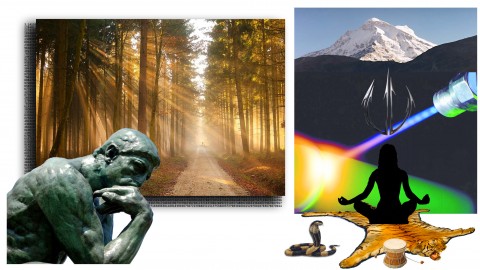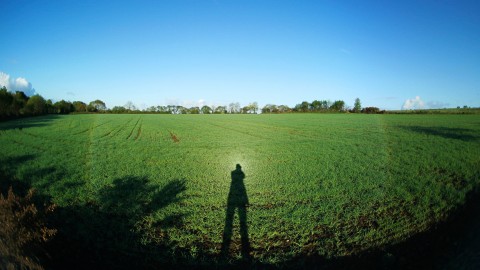Doubting everything that can be doubted, but one could not doubt himself.
According to the Pantanjali this is a great achievement in opening towards divine.
Then our question will be – HOW?
The opening toward higher consciousness means you must have something indubitable with you; that’s what trust means. You have at least one point which you trust, which you cannot doubt even if you want to. That’s how Descartes came to a point through his logical investigation that, “We cannot doubt ourselves. I cannot doubt that I am, because even to say that ‘I doubt,’ I have to be there. The very assertion that ‘I doubt’ proves that I am.”
You must have heard the famous dictum of Descartes, cogito, ergo sum – “I think, therefore I am.” Doubting is thinking: I doubt, therefore, I am. But this is just an opening, and Descartes never, never went beyond this opening. He turned back again. You can come back from the very door. He was happy that he had found a center, indubitable center, and then he started to work out his philosophy. So all that he had denied before he pulled in from the back door: “Because I am there must be a creator who has created me.” And then he went – then, heaven and hell, then God and sin and the whole Christian theology came in from the back door.
He used this as a philosophical inquiry. He was not a yogi; he was not really in search of his being, he was in search of a theory. But you can use that as an opening. An opening means you have to transcend it; you have to go beyond; you have to pass it over; you have to go through it. You are not to cling to it. If you cling, then any opening will become closed.
This is good to realize that at least “I cannot doubt myself.” Then the right step will be this: “If I cannot doubt myself, if I feel I am, then I must know who I am.” Then it becomes a right inquiry. Then you move into religion, because when you ask “Who am I?” you have asked a fundamental question. Not philosophical – existential. Nobody else can answer who you are; nobody else can give you a ready-made answer. You will have to search yourself; you will have to dig it within yourself.
Just this logical certainty that “I am”, is of not much use if you don’t go ahead and ask, “Who am I?” And this is not a question, this is going to be a quest. A question may lead you into philosophy, a quest leads you into religion. So if you feel that you don’t know yourself, then don’t go to anybody to ask “Who am I?” Nobody can answer you. You are there inside, hidden. You have to penetrate to that dimension where you are, encounter yourself.
This is a different type of journey, the inner. All our journeys are outer: we are making bridges to reach someone else. This quest means you have to break all the bridges to others. All that you have done without has to be dropped, and something new has to be started within. It will be difficult, just because you have become so fixed with the without. You always think of others; you never think of yourself.
This is strange, but no one thinks about himself – he thinks about others. If sometimes you think about yourself, it is also in relation to others. It is never pure. It is not simply just about you. Then when you think just about you, thinking will have to be dropped, because what you can think? About others you can think; thinking means “about”. What you can think about yourself? You will have to drop thinking and you will have to look inside – not thinking, but looking, seeing, observing, witnessing. The whole process will change. One has to look for oneself.
Doubt is good. If you doubt, and if you continuously doubt, there is only one rock-like phenomenon which cannot be doubted, which is your existence. Then a new quest will arise, and that is not a question. You will have to ask, “Who am I?”
Ramana Maharshi, his whole life, was giving only one technique to his disciples. He will say, “Just sit down, close your eyes, and go on asking ‘Who am I? Who am I?’ Use it as a mantra.” But it is not a mantra. You have not to use it as dead words. It must become an inner penetration.
Go on asking it. Your mind will answer many times that you are a soul, you are a self, you are divine – but don’t listen to these things, these are all borrowed; you have heard these things. Put them aside unless you come to know who you are. And if you go on continuously putting the mind aside, one day there is an explosion. The mind explodes, and all the borrowed knowledge disappears from you. And for the first time you are face to face with yourself, looking within yourself. This is the opening. And this is the way and this is the quest.
Ask who you are and don’t cling to cheap answers. All answers that are given by others are cheap. The real answer can only come out of you. It is just like a real flower can only come out of the tree itself; you cannot put it from the outside. You can, but that will be a dead flower. It may deceive others, but it cannot deceive the tree itself. The tree knows that “This is just a dead flower hanging on my branch. And this is just a weight. This is not a happiness, this is just a burden.” The tree cannot celebrate it; the tree cannot welcome it.
The tree can welcome only something which comes from the very roots, from its inner being, innermost core. And when it comes from its innermost core, the flower becomes its soul. And through the flower the tree expresses its dance, its song. Its whole life becomes meaningful. Just like that, the answer will come out of you, out of your roots. Then you will dance it. Then your whole life will become meaningful.
If the answer is given from without, it will be just a sign, a dead sign. If it comes from within, it will not be a sign, it will be a significance. Remember these two words – “sign” and “significance”. Sign can be given from without; significance can only flower from within. Philosophy works with signs, concepts, words. Religion works with significance. It is not concerned with words and signs and symbols.
But that is going to be an arduous journey for yourself because nobody can help really, and all the helpers are, in a way, hindrances. If somebody is too patronizing and gives you the answer, he is your enemy. Patanjali is not going to give you the answer, he is only going to indicate to you the path, the way from where your own answer will arise, from where you will encounter the answer.
The great Masters have given only methods, they have not given the answer. Philosophers have given answers, but Patanjali, Jesus or Buddha, they have not given answers. You ask for answers and they give you methods, they give you techniques. You have to work your answer out yourself, through your effort, through your suffering, through your penetration, through your TAPASCHARYA. Only the answer can come, and it can become – a significance. Your fulfillment is through it.
Tags: Doubt Opening Towards Divine Patanjali










